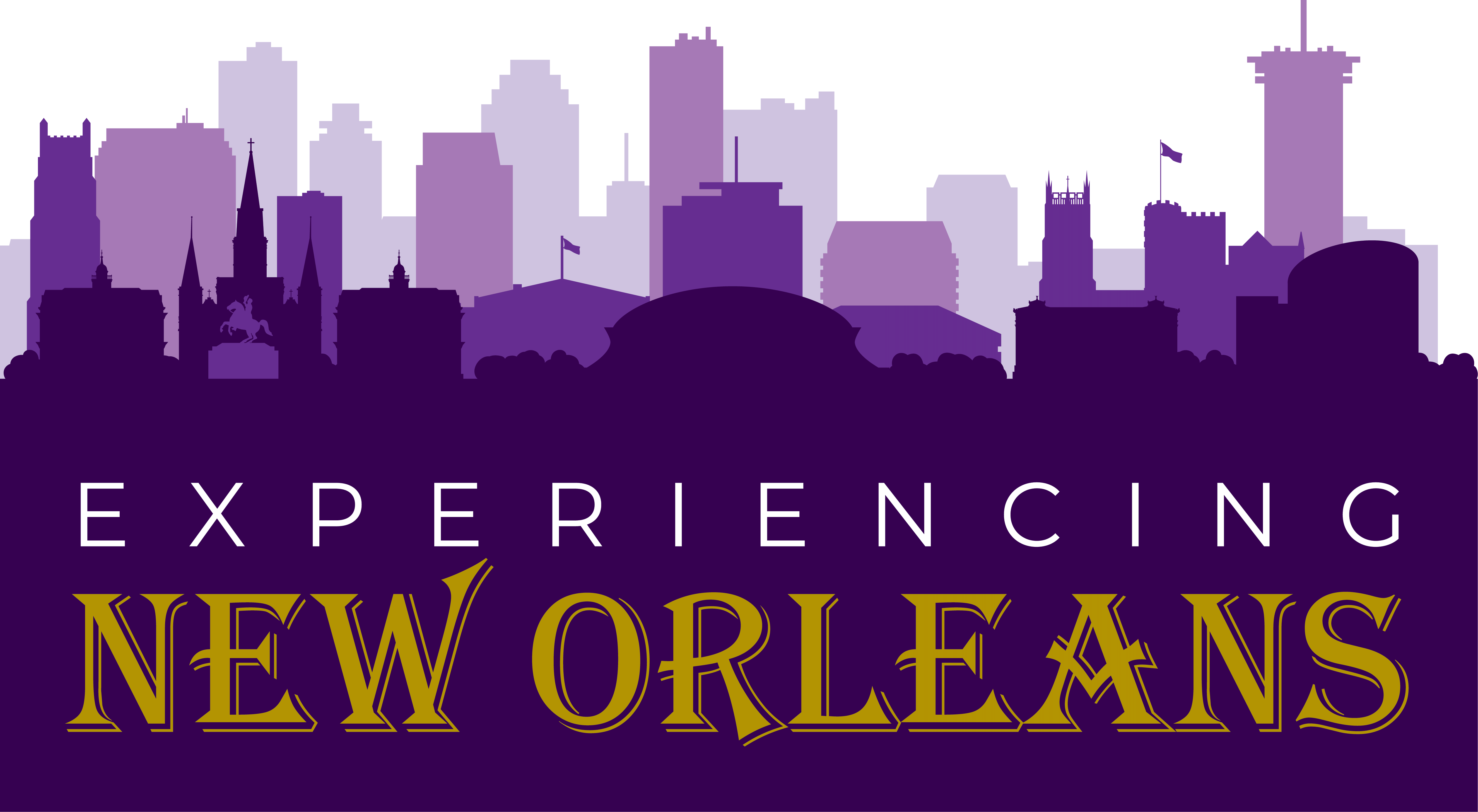The Inside Scoop on Producing a Festival
Like any business, putting on a festival requires a plan. The plan (aka Event Bible) needs to take into account a number of factors to ensure success: location, demographic, entertainment, food, drinks, sponsors, and other intangibles. Even then, success isn’t guaranteed. You can do everything right and still fail. In New Orleans, you have to contend with the weather where it rains on average 108 days a year, or nearly one third of the time.

Back in the early-to-mid 2000s, the local calendar started filling up with free festivals every weekend, celebrating everything from oysters and Louisiana seafood to po-boys and even sushi. Most of them had the same formula: admission was free, entertainment was top notch, and the food celebrated the best local restaurants and catering companies in town.
The way these festivals made their money was through sponsorships, vendor fees and alcohol sales. But as more and more festivals came on line, the sponsorships started dwindling and the vendors became harder to find. With already razor-thin margins, the majority of the income came from beer and alcohol sales, which was entirely dependent on the weather. One major storm could wipe out an entire weekend leaving the festival producers with a ton of risk on the table.
Of the aforementioned festivals, only the Po-Boy fest survived into the 2020s, only to be wiped out the past two years due to Covid-19. Not only do festivals need to contend with constantly changing pandemic mandates, the rising costs of everything from paper supplies to labor, has made profitability even harder to come by.
In 2017, four new festivals joined the already crowded field of local events. New Orleans Bourbon Fest which celebrates all things bourbon with tastings, seminars, and spirit dinners; the Top Taco competition featuring forty restaurants dishing out gourmet tacos and cocktails; Fried Chicken Fest, which quickly became the National Fried Chicken Festival; and Beignet Fest, a family-friendly festival in City Park celebrating beignets, both sweet and savory.
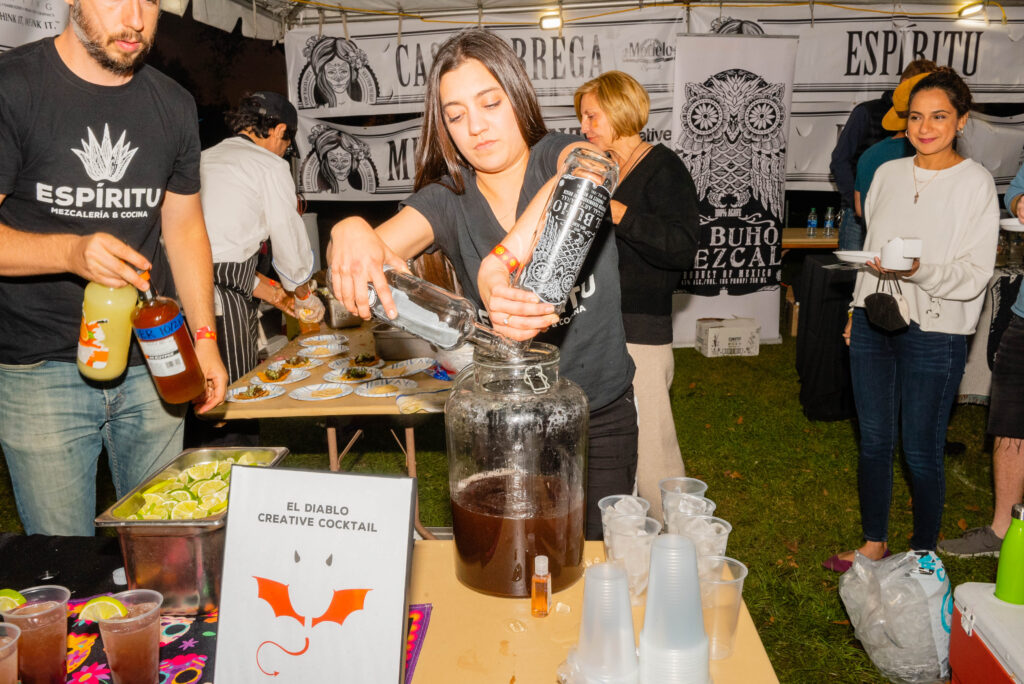
All four festivals had immediate success. But like any business, it takes years to build a brand and sometimes even longer to turn a profit. Once groomed with a large audience, the festivals try to outdo themselves each year. More events, more activations, more expenses.
In 2019, Top Taco founders added additional seminars and parties to their signature event, dubbing it Agave Week. While successful from a sponsor standpoint, the event was a financial disaster due to high room fees at the Ace Hotel and the room block not filling up. On top of that, four days before Top Taco, festival organizers were faced with a devastating dilemma. Thursday’s forecast called for a bomb storm with 100% chance of rain and 25-35mph winds.
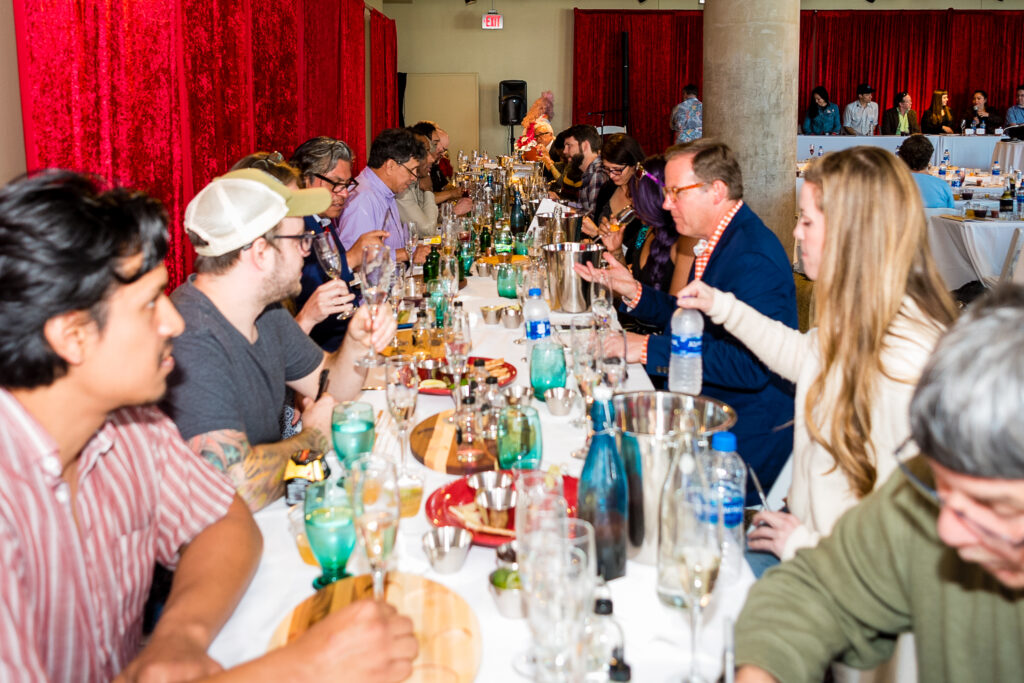
Facing the major expense of setting up the festival only to have it cancelled three days later, Top Taco was postponed to a later date. New Orleans weather can be unpredictable so when it didn’t rain on Thursday, fans of the event- especially those traveling from out of town- were left angry and upset. The goodwill that Top Taco gained in their first two years disappeared over night. The social media rebuke was quick and intense, forcing the event producers to issue over five hundred refunds.
If you’re wondering what happened to the people behind the event, let’s just say that the event producer’s mental health took a beating. Without the help of family and friends, Top Taco would have been canceled forever.
Looking to redeem themselves, Top Taco 2020 was shaping up to be their biggest and best yet. Scheduled for March 19th, festival organizers were keeping a weary eye on the growing pandemic that was sweeping through Asia and Europe. Cities across the world were shutting down. As the first cases were reported in Seattle and New York, it started to become realistic that New Orleans would eventually shut down too.
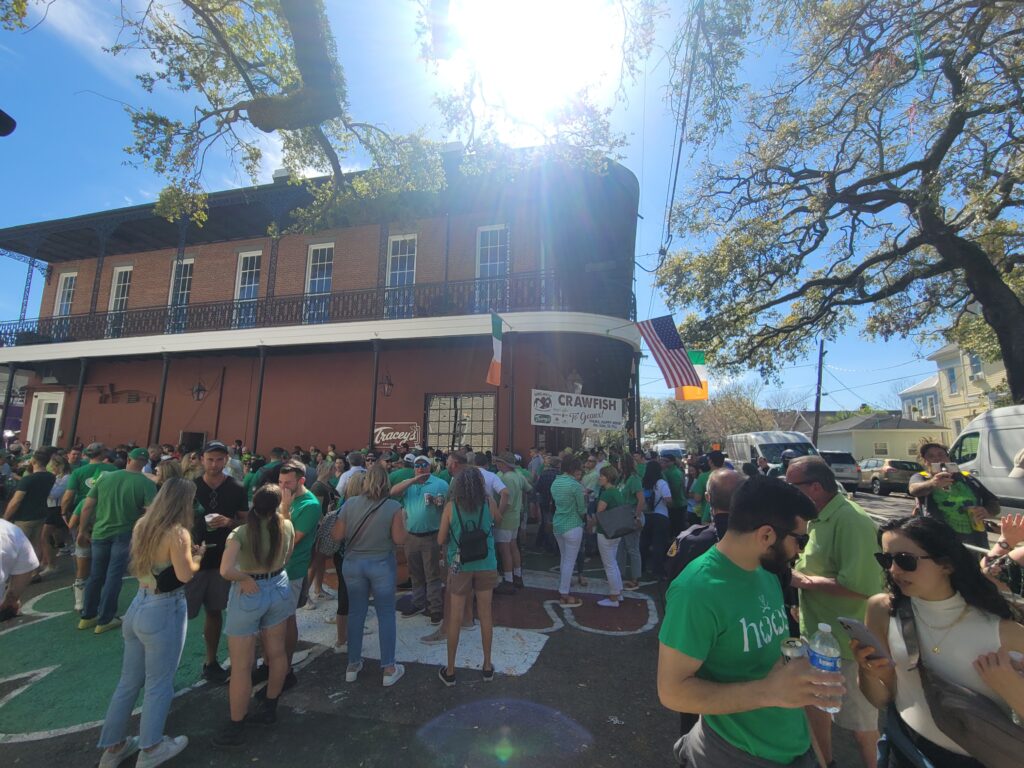
Bourbon Festival, the Saint Patrick’s Day Block Party, and NBA games were scheduled for the weekend of March 14th. One by one, they started announcing their own postponements until finally on March 12th, Mayor Latoya Cantrell announced that all major events in the city were canceled effective immediately. Without advanced warning, Bourbon Fest organizers were left to break down their entire event, which had been erected just days before. It was their worst case scenario with hundreds of thousands of dollars at stake.
The rest of the spring festivals were postponed as well. That included Top Taco, BUKU, Hogs for the Cause, French Quarter Fest, Jazz Fest and Bayou Boogaloo. There was no playbook for festivals during a pandemic so no one knew what to do. We all just assumed that it would be a few months and then back to normal. No one at the time thought it would be two years before most of these events returned to the New Orleans calendar.
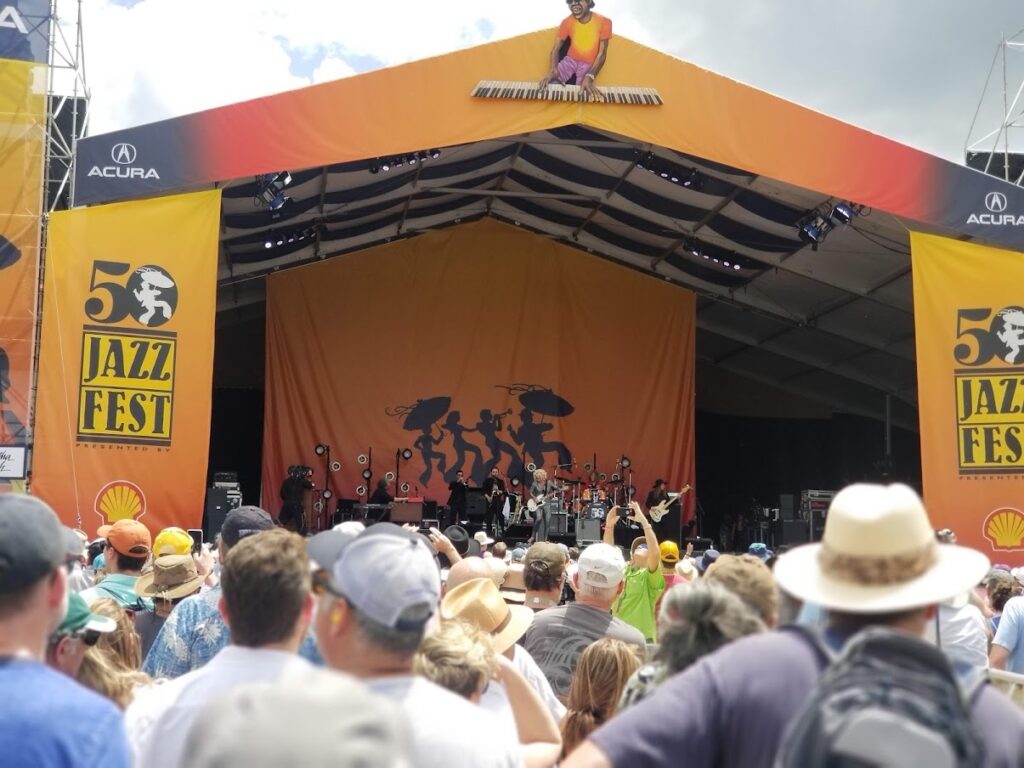
In the meantime, festival organizers had to make tough decisions. Some shut down entirely like the Jerk Chicken Festival and the Caribbean Festival, on the hook for expenses incurred in advance of their May festivals. Top Taco issued refunds to all who asked, while rolling over the remaining 2,000 tickets to a later date. Others like New Orleans Wine and Food Experience and New Orleans Bourbon Festival refused to issue refunds, instead offering credit to a future event. It’s hard to even imagine the vitriol and lack of empathy from ticket holders demanding their money back.
Those that decided to continue on rescheduled their festivals for fall 2020. That quickly became unrealistic as the pandemic spread and deaths mounted. Mask mandates, curfews, and then a near total shutdown followed. The slate of fall festivals were now canceled too, including the popular Halloween weekend Voodoo Fest, Beignet Festival, Oak Street Po-Boy Fest, and the Mac N Cheese Festival, which started in 2018.
Early in 2021, the return of festivals looked promising. Scientist had developed and fast-tracked a Covid-19 vaccine. With cases, deaths, and hospitalizations declining, Jazz Fest announced their May lineup, once again headlined by the Rolling Stones. Hope quickly dissipated soon after as the Delta variant turned an already bad situation into something even worse.
Not long after, Orleans Parish instituted vaccination and additional mask mandates. Mayor Cantrell made the tough decision to shut down Mardi Gras and again the entire slate of spring festivals was gone in a flash. And yet again, festival organizers looked for fall dates to reschedule. Only a few were able to do so.
Hogs for the Cause and Top Taco took the drastic step of moving their events to Jefferson Parish where mandates were much less restrictive. Hogs squeezed their massive BBQ competition into June during a short lull in the pandemic. The other festivals rescheduled for fall including Jazz Fest, French Quarter Fest, and Essence Festival had their hopes dashed when Delta gave way to the Omicron variant.
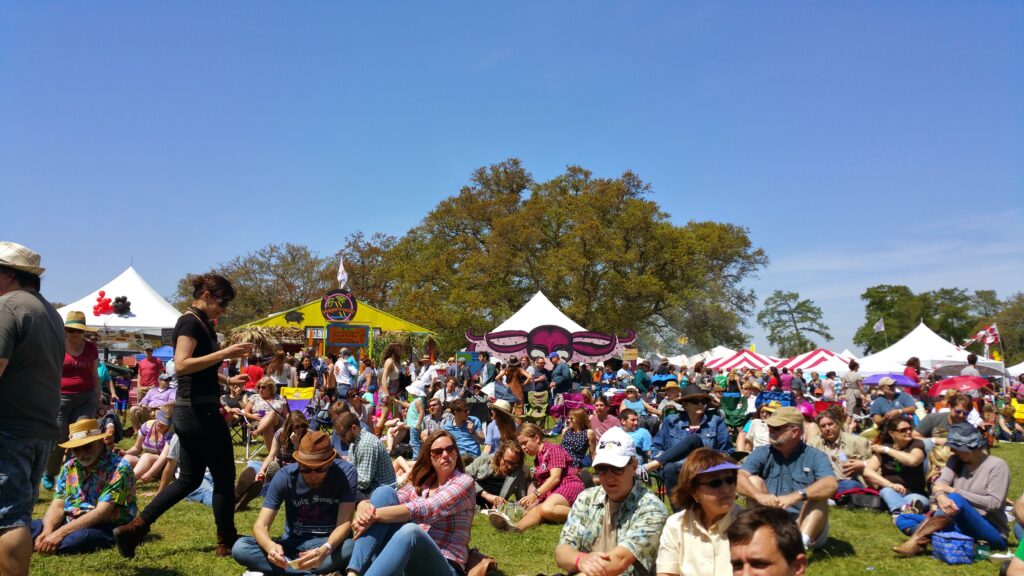
The only event to power through into the fall ended up being Top Taco at Lafreniere Park in Metairie, scheduled for September 23rd. And then came Hurricane Ida. With Category Four winds bearing down on the city and thousands of people evacuating, Top Taco organizers planned for the worst, the final nail in the coffin.
When the storm passed, the damage was severe. Lafreniere Park was closed until further notice. Many trees were down, massive amounts of debris littered the park, and the entire back wall of the stage was reduced to rubble. Top Taco organizers debated whether to try to postpone once again or shut it down forever. When it became clear that they could put on Top Taco in late October, they had to decide if it was the right thing to do.
Top Taco relies on the generosity of their restaurant partners who donate their time and energy to making the event happen. It was quickly apparent that many employees decided not to return to New Orleans following Hurricane Ida. Restaurants were so short-staffed, they couldn’t even operate their own businesses let alone participate in an event.
Top Taco decided to continue on, even with their own staffing problems. Their event coordinator caught Covid two weeks before the event, volunteers were scarce, and some vendors were unable to provide the necessary manpower to properly service their contracts. When it finally looked like the show would actually go on, another bomb storm barreled through the city the day before Top Taco. Tents blew down, the electrician fell behind, and puddles formed in the field.
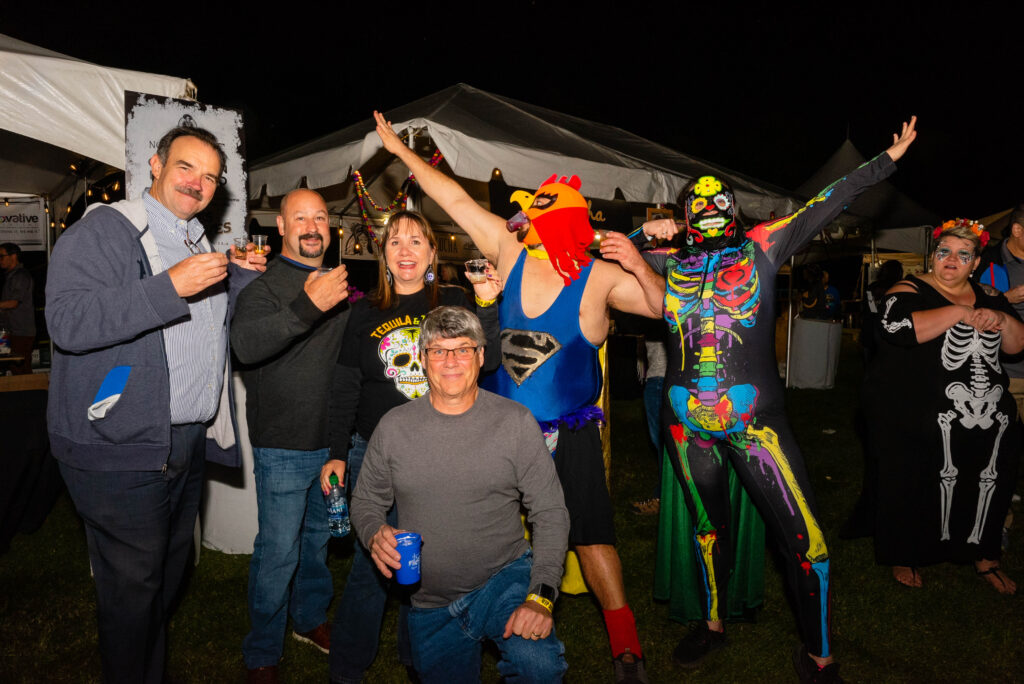
Despite those trials and tribulations, Top Taco was a resounding success. The move to Metairie turned out to be the right decision. Even with the stage damage and additional generators needed, Lafreniere Park turned out to be the perfect venue for their event. And festival goers were so happy to be back out doing what they love to do.
As the Omicron variant started receding, new hope bloomed for festivals in 2022. Mardi Gras balls and parades returned, even though parade routes were shortened due to police shortages. The first YLC Wednesdays at the Square launched just last week, and the New Orleans Bourbon Festival, BUKU Fest, and Hogs for the Cause are scheduled for this weekend and the weeks ahead.
While it may take years for some events to make back the losses of the last two years, others have decided not to return at all. Voodoo Fest has already been canceled for 2022 and may be gone forever. Ahava Fest, established in 2019, looks to be gone as well. Other events have scaled back significantly or changed their model altogether.
Bayou Boogaloo, the popular May three-day music festival on the banks of Bayou St. John, is now introducing a $50 ticketing fee. Not long ago, Bayou Boogaloo was free, but the changing economics of festivals has forced organizers to raise their fees from $10 in 2019 to $50 this year. Hogs for the Cause is returning the first weekend in April to its Lakefront location in Orleans Parish. Top Taco festival producers are introducing the first new festival post-pandemic, bringing the New Orleans Food Fight to Crescent Park on the banks of the Mississippi River May 26th.
This week, Mayor Cantrell finally lifted the last of the Covid mandates, allowing the unvaccinated to move freely among us. She cited low cases and hospitalizations after the busy carnival season. Now that at-home tests are widely available, it’s easy to doubt the veracity of her claims. But festival and event producers are all happy to move into the post-pandemic world where they only have to contend with inclement weather, rising costs, staffing shortages, and supply chain issues.
Festival producers always have to prepare for the unexpected. Post-pandemic, they also have to wonder if anyone is going to show up. Ticket buyers in New Orleans are notorious for purchasing last minute, likely due to weather concerns. While we all assume that mandates and masking are a thing of the past, many ticket buyers are weary of getting stuck with worthless tickets again. It’s going to take some time for festivals to gain consumer confidence again. Until then, it’s all a gamble on what will succeed and what’s the next festival to fall by the wayside.
